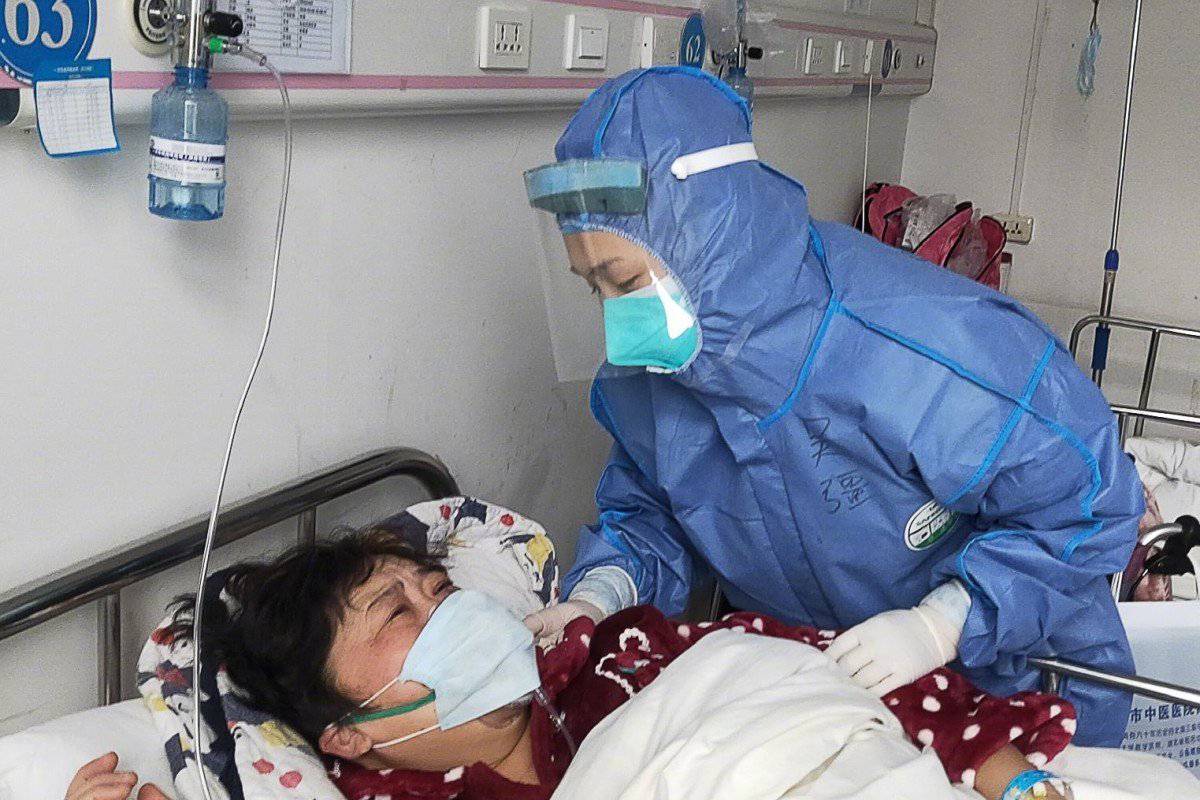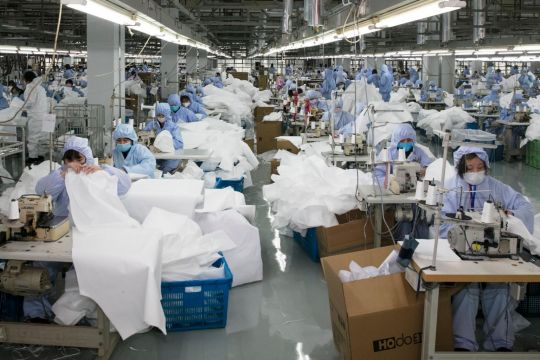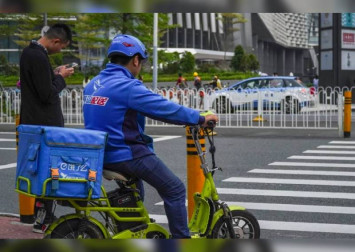Coronavirus: Why many deaths will never appear in official figures
Many families have struggled to arrange hospital treatment for their relatives, including this woman whose daughter was filmed banging a gong on her balcony shouting for help.
PHOTO: Weibo
PHOEBE ZHANG
SOUTH CHINA MORNING POST
Feb 13, 2020
FacebookTwitterTelegramWhatsAppEmail
Retired Wuhan factory worker Wei Junlan had always been in good health, but around two weeks after developing the first signs of a cough and fever, the 63-year-old was dead from what doctors suspect was the new coronavirus.
But her death on Jan 21 will not show up in official statistics about the outbreak - her death certificate listed the cause only as "heavy pneumonia".
Her nephew Jerry Shang said that Wei had not been tested for the disease, but that the doctor said her symptoms - including a lung infection, fever and increasing weakness - closely matched those of Covid-19, the disease caused by the virus.
By the end she was unable to walk, and the last the family saw of her was when she was being wheeled into the emergency room. The doctor told the family: "It's the pneumonia that everybody around the country knows about."
Local doctors have heard of many such cases and many Wuhan residents have complained that family members cannot get a proper diagnosis because frontline hospitals are overwhelmed in the face of high patient numbers and a shortage of supplies and testing kits.

Wei Peng, a community hospital doctor in the city, said that medical staff were not allowed to list coronavirus as a cause of death when cases had not been confirmed and said that later instructions had even banned them from listing pneumonia. Instead they can only write the immediate cause of a patient's death, such as diabetes or organ failure.
He also said the problem was compounded by the difficulty in getting some patients to hospital in time.
He gave the example of a woman whose father died at home because she did not have the strength to get him to her car and the ambulance was too busy to collect him.

"Such patients die at home, nothing can be done, and they cannot be counted in the official numbers," he said.
Some patients, like Wei, have died without it ever being confirmed what had taken their lives.
China's health authorities have admitted that the real number of Covid-19 cases is likely to be higher than official statistics show.
"The mortality rate that we calculate at the moment is for confirmed cases; there are cases with lighter symptoms or other scenarios not included in our statistics," Jiao Yahui, an official with the National Health Commission, said at a news conference last week.
Wei had never been to the Huanan Seafood Market, where the virus is widely believed to have originated, but she lived just 3km (2 miles) away and Shang, her nephew, suspects she became infected in the neighbourhood.
He also questioned the accuracy of the official figures for Covid-19 deaths and infections.
"As they updated the list of deaths, I kept checking for her name, but she was never among them," he said. "After a while, they stopped publishing individual names."
READ ALSO
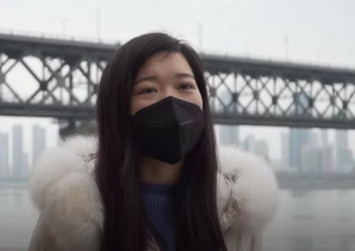
Diary of a coronavirus survivor: Wuhan nurse claims she recovered from virus at home
Since official channels are overloaded, grass-roots volunteers across the country have come together to help verify and update medical information online, as well as assist people in need to contact those who can help them.
One such volunteer, Beijing-based Li Nian, said cases such as Wei's were common and often whole families could become infected.
But while the volunteers are able to provide communities with useful information - for example, telling people which hospitals have available beds or testing kits - getting full information about the situation on the ground is almost impossible.
One woman Li has been trying to help lost her husband at the start of the month - by which time the rest of the family had also fallen ill.
Although the woman and her son are now recovering, she is still frantically searching for a hospital with spare beds for her mother-in-law, whose illness is yet to be diagnosed.
Others have adopted more desperate measures in an effort to gain admission to hospital. Over the weekend one video widely circulated on social media showed a woman standing on her balcony banging a gong while shouting: "Help! I'm dying! Help, please someone help! I am at the end of my wits!"
Hubei Daily later reported that the woman had been trying to get help for her mother, who has since been confirmed as suffering from Corvid-19 and is being treated in Hanyang hospital.
The grief of those whose relatives have died at home is compounded by their confusion about what to do next, and often they do not have time for proper goodbyes.
Li said the woman she was helping barely had time to deal with her husband's death. The funeral home sent a car to pick up the body, but she did not know what to do with his bedsheets and clothes and was also trying to concentrate on finding a hospital bed for her mother-in-law.
Another Wuhan resident, Xia Chengfang, was unable to say a proper farewell to her grandfather, who died on January 28.
READ ALSO
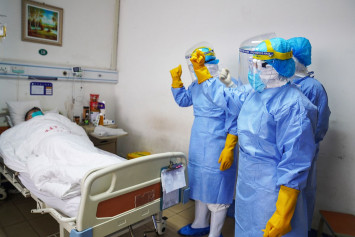
Coronavirus: China's death toll rises to at least 630
"The hospital directly called the funeral home to cremate his body, we weren't able to see him in the end. My mother and uncle picked up his clothing, drove far away from the crowds and burned it," she said.
Funeral homes in the city have been working nonstop during the outbreak. An employee from Wuchang Funeral Home named Huang told Tencent News recently that staff were working round-the-clock shifts and often only have a few minutes rest between jobs.
Families of the dead are also banned from holding funeral ceremonies to prevent the further spread of the disease. Instead the hospitals, or families of those who die at home, have to contact the funeral homes who then take care of matters.
When the deceased is a suspected Covid-19 case, the family is asked to sanitise the home before the body is collected.
"We wear a full protection suit, with gloves, masks and goggles," Huang said. "When we come back to the funeral home, we spray disinfectant all over our bodies and hang the suit out to dry."
After his aunt died, Jerry Shang said the family was not allowed to see her body or arrange the funeral.
Instead, the hospital collected patients' bodies and arranged for a local funeral home to cremate them together.
Shang is the only member of Wei's family remaining in Wuhan after he told the dead woman's son to join her husband and other children in the southern city of Shenzhen before Wuhan went into lockdown.
He said that Wei's ashes were now being held at a local funeral home, adding: "The hospital said my cousin could come back and collect them once the outbreak is over."





):
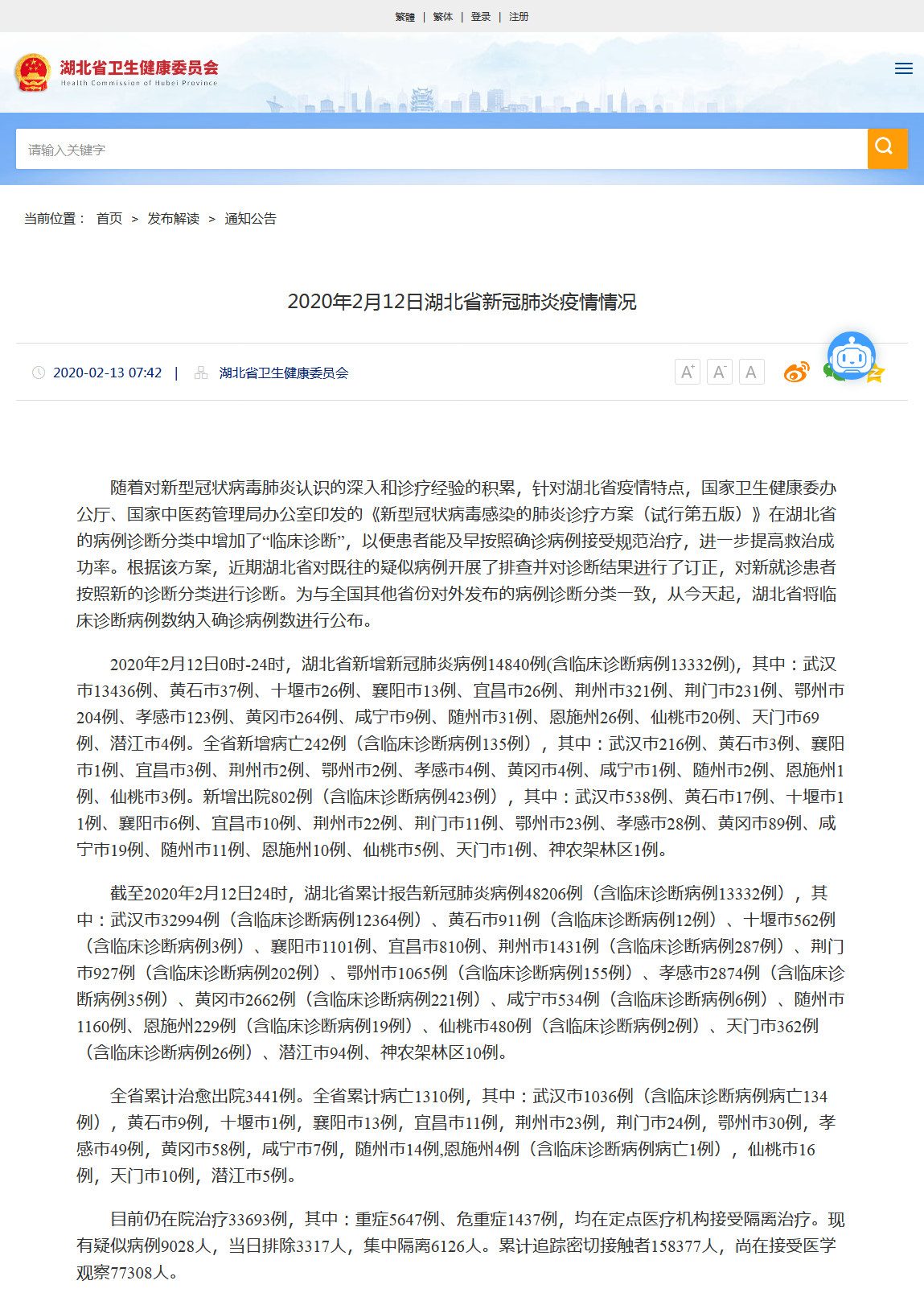
):


